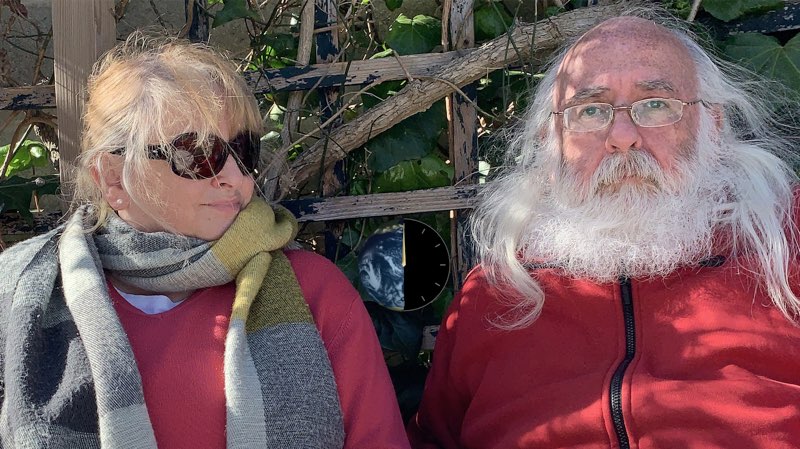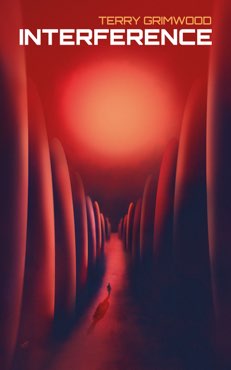Teika Marija Smits
asks the questions

Ali and Peter Buck
Elsewhen Press is a small independent publisher specialising in Speculative Fiction. Their Earth-based operations are headquartered in the UK, in the South East of England. Elsewhen Press's heavily laden tables of books can often be spotted at science fiction conventions around the UK.
Teika Marija Smits: Although you have a background in engineering, you’ve been a publisher since 2006. What prompted you to make this shift in career?
Peter Buck: Not so much a shift, more a parallel track! As a consulting engineer, I spent most of my time writing reports or technical articles. I started to write fiction for fun, like Al, and eventually we discovered how hard it is to find an agent or publisher when you’re an unpublished author. So we investigated how to publish books. We thought we’d give it a go so we could make it a bit easier for other authors. The rest is, as they say, history.
TMS: You run Elsewhen Press with your wife, Al. Which skills do you each bring to the press? And do you sometimes disagree about which books to take on?!

PB: We both love science fiction and fantasy, and read many of the same books as children. We’re both pedantic about language (ideal for editing/proofreading). Al is a scientist, but also a brilliant artist, while I can’t draw for toffee. There are three of us on the editorial board (Al, me, and our principal editor); when we get a submission from a new author, at least two of us will usually read it and if we both agree then we’ll offer a contract.
TMS: Elsewhen Press publishes speculative fiction, which is a fairly broad term for a variety of genres, such as science fiction, fantasy and paranormal. Is there one thing that links all the books you publish, do you think? And what makes a manuscript a good fit for the Elsewhen list?
PB: Speculative fiction is a very wide ‘super-genre’, but it has the advantage of not requiring us to pigeonhole books. The main thing that is common across the books that we publish is that we like them and enjoyed reading them when submitted – but as time has gone on, we have noticed that very many of them are hard to classify into a single genre: science fiction with some fantasy or paranormal elements, or fantasy with some hard science, and so on.
TMS: Which brings me nicely on to my next question: how does the submissions process work at Elsewhen?

PB: We ask for a synopsis. If that sounds like our cup of tea, we ask for a couple of chapters. That way we can be assured of the quality of the writing. If we like that, we’ll ask for the whole manuscript. Then, as I said earlier, at least two of us will read it and compare notes. If we’re not in agreement either way, we may ask the third board member to read and have a casting vote! It takes a bit longer that way, but still quicker than many big publishers, apparently. And our reply is always personal, with (hopefully) useful feedback for the author if we are declining.
TMS: . What makes an author’s manuscript really stand out and make you want to publish it?
PB: Well-crafted prose. Beyond that, a great story and characters that you care about (not just the ‘hero’, sometimes a really good ‘baddie’ is just as enchanting – look at Villanelle: psychopathic killer, but fascinating). If you find yourself staying up late to read the next chapter that’s always a good sign.
TMS: What has been one of your greatest challenges while running the press? And your greatest successes?
PB: Marketing is the hardest part of the whole process. Trying to achieve discoverability for a new book from an indie press, you feel like the whole game is stacked against you. Our successes are down to having brilliant authors who connect with their readers. But for us, the greatest success of all is that our authors refer to us and them collectively as the Elsewhen family; it’s fantastic to see lots of our authors rallying round and supporting one another when one of them has a new book out.
TMS: How much of your week is spent working on the press? Can you tell us something about the team you have about you?
PB: I still do some consultancy, but that is very ad-hoc (especially during and since the lockdowns). On a typical week, at the moment, I may have three or four days working on new titles and a day or two on admin etc. Our kids have grown up now, and Al and I work together in the same room, so it’s very easy to slip into working the whole time. This year we’ve been trying to make sure we have time off at weekends, to relax.
The immediate team is me, Al and our principal editor, Sofia, who also has an encyclopaedic knowledge of SFF and gaming. But the real team is the whole Elsewhen family – authors, artists, editors, and proofreaders.
TMS: Any hard-won wisdom (about life or publishing!) that you’d like to pass on?
PB: Our mottoes through life have probably been ‘How hard can it be?’ and ‘What could possibly go wrong?’ but now we’re beginning to think of those more as epitaphs! So maybe ‘Nil illegitimi carborundum’ which is dog latin for ‘Don’t let the bastards grind you down’.
TMS: As a former publisher myself (and now editor-at-large) I know it’s hard to single out any one title as being a ‘favourite’, but if there is one Elsewhen book that we should all go out and buy right now, what would it be?
PB: Crikey. That’s like asking a parent which is their favourite child – they will never admit to having one. So my immediate answer is ‘All of them’. But if pressed for a recommendation for a good introduction to Elsewhen authors, I would have to say the anthology Existence is Elsewhen which has twenty stories from twenty of our authors, some of which lead nicely into the worlds of their own novels, but many of which are standalone.
TMS: Lastly… a pint of real ale or a pint of cider…?!
PB: We don’t drink very much, so I would have to opt for a small glass of vegan Lambrusco Rosso.
TMS: Cheers!

Elsewhen Press

Teika Marija Smits is a UK-based writer and freelance editor. She writes poetry and fiction, and her speculative short stories have been published in Reckoning, Best of British Science Fiction (2018 & 2020), Enchanted Conversation and Great British Horror 6. A fan of all things fae, she is delighted by the fact that Teika means fairy tale in Latvian.